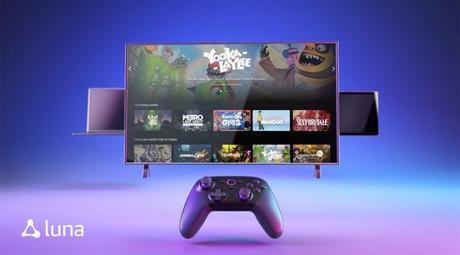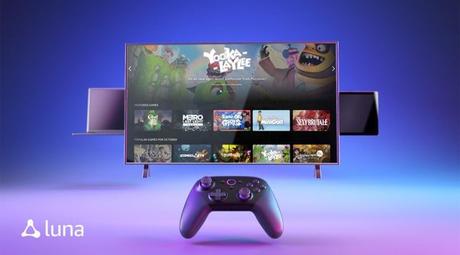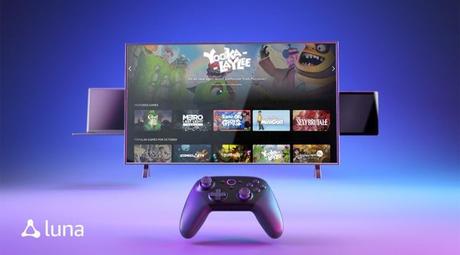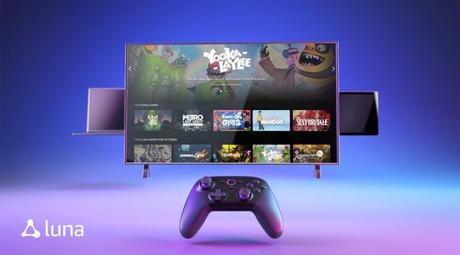When Google Stadia was first announced, it promised to change the way we consume video games forever. It only took one tweet to destabilize all the hype.
"Here's my Google Stadia review in a GIF," the journalist told the Washington Post Gene Park just before the product was launched. He hit the space bar on his keyboard to jump into the game and looked back in mock delight when it took Stadia almost a full second to register it.
For more of that
Subscribe to the CNET Now newsletter to receive the most important stories of the day from our editors.
With Google Stadia, it's safe to say that mistakes were made. Latency issues aside, Stadia was a tough sell from the start, shaped by a business model far more traditional than we expected.
We expected the Netflix of Games, a gigantic suite of video games for a low monthly fee. In the end, we have something weird: a tight, piecemeal selection of mostly mediocre games for free and a request to pay - practically at full price - for practically released video games like Doom Eternal or Red Dead Redemption II. Pretty much a complicated, confusing Xbox or PlayStation where you stream video games instead of downloading them.
Hardly the forward-looking revolution that we had hoped for. Google Stadia has taken the Ouya route after its lackluster start. Great idea, surpassed in the execution of Game pass, a service on Xbox One that recently made it possible to stream games via its "Ultimate" subscription, but has also made great strides in the long-term battle for the "Netflix of Games".
In 2020, Google Stadia is something of a ghost town.
Given this error, Amazon announces a service and starts it like Amazon Luna - what looks like Stadia on the surface - seems like a crazy idea. But even at this early stage, it seems like Luna has learned from Google Stadia's mistakes, and that alone gives it a far greater chance of success.
First of all: the model. Amazon Luna launches with 100 games that can be played for a monthly subscription of $ 5. Google Stadia currently offers 25 free games with its Stadia Pro service. This list changes monthly.
Amazon Luna's offerings appear to be skyrocketing than Stadia's, and it doesn't cloud the water by asking you to pay extra cash for new releases.
Perhaps more importantly, Amazon seems to know its role. Marc Whitten, vice president of Amazon Entertainment Devices and Services, seems very aware that Luna is not competing for audiences and is endlessly refreshing pre-orders for the internet Xbox Series X. or PS5. Luna is all about lowering the barrier to entry for video games and providing the greatest possible resistance to a broader population of casual gamers (or expired gamers) who are just looking for a convenient and easy way to burn off free time.




Amazon
For this audience, a nice 100 round is a sweet spot. It's competitive with Game Pass, which houses a similar number: more than any casual gamer would ever have time to play, but enough to offer a semblance of choice. They suspect there will be something for everyone in these 100 games.
But there is an opening. Luna's timing couldn't be better. Thanks to the limited number of console launches, there are a large number of people here who will be craving a new Xbox from PlayStation. It's easy to imagine these folks experimenting with a Luna subscription instead, especially those with Amazon Prime subscriptions and credit cards that are already hooked up to Amazon's vast ecosystem. With Luna, Amazon has a real chance to be successful where Google failed.
At least it seems able to outperform Google Stadia.
The elephant in the room is of course Microsoft and xCloud. xCloud is Microsoft's version of Stadia or Luna, a service that allows gamers to stream video games directly to laptops, televisions, or mobile devices. After starting beta in late 2019, xCloud officially became available to Xbox Game Pass subscribers this month. It's a critical part of Microsoft's plan to dramatically expand the subscriber base beyond console owners.
They feel like only Microsoft, Google, and Amazon have the infrastructure to stream games effectively. Of the three, Microsoft has the most experience. It also already has 15 million subscribers connected to Game Pass.
It could be a tough ride for competing services like Luna and Stadia. Both Amazon and Microsoft seem to be playing in the same room. A large subscription base is the obvious endgame here, and the battlefield is mobile devices like laptops, tablets, and phones.
Microsoft is the clear favorite, but if Amazon learns from Google's mistakes and relies heavily on the grunt of existing services like Amazon Prime to move things forward, this could be a step into second place. And if the chips fall in Amazon's favor, the battle for the Netflix of games may not be as straightforward as we once thought.
